Innovations in Biopharmaceutical Manufacturing: Morocco’s Rising Biotech Frontier
)
Morocco is steadily building its reputation as a biotech manufacturing hub, leveraging its strategic position between Europe and Africa to attract investment and develop specialized expertise. The country's biopharmaceutical sector has grown considerably in recent years, supported by forward-thinking government policies and partnerships with global industry leaders. This growth comes at a time when the global biopharmaceutical industry seeks to diversify manufacturing locations and build resilient supply chains. Morocco's commitment to developing its biotech capabilities demonstrates how emerging economies can create competitive advantages in highly specialized industries through targeted strategies and long-term vision.
How Morocco is Advancing Biotech Manufacturing Capabilities?
New government incentives driving biopharmaceutical manufacturing
The Moroccan government has implemented targeted incentives to accelerate the country's emergence as a regional pharmaceutical hub. Through a combination of regulatory reforms, public-private partnerships, and strategic investments, Morocco is creating a favorable environment for biotech manufacturing. The country is aligning its regulatory framework with WHO and EU standards, significantly improving Good Manufacturing Practices (GMP) certification processes and clinical trial readiness [WAM Morocco].
Another key initiative includes the creation of green industrial zones equipped with energy-efficient infrastructure. These zones, combined with public investment incentives for clean manufacturing, support Morocco's broader industrial strategy while making the country attractive for biotech companies seeking sustainable operations.
Major investments in local bioprocess engineering talent
Recognizing that a skilled workforce is fundamental to biotech manufacturing success, Morocco has prioritised building local bioprocess engineering capabilities. The Moroccan Consortium of the North African Regional Capability and Capacity Network, represented by Institut Pasteur of Morocco and its institutional partners, has launched specialized biopharmaceutical manufacturing training programs aimed at strengthening regional expertise.
These initiatives address Africa's urgent need to expand its vaccine development and biomanufacturing workforce, particularly in critical areas like drug substance production and process development. The goal is to accelerate the development of professionals capable of supporting end-to-end vaccine manufacturing processes, reducing dependence on foreign expertise.
The development of local bioprocess engineering talent represents one of Morocco's most strategic investments in its biotech future.
Global partnerships shaping smart labs in Morocco
International collaborations are proving vital for Morocco's biotech advancement. Notable examples include Cooper Pharma's strategic cooperation agreement with China's Jemincare Pharmaceutical Group to co-develop advanced therapeutics in Morocco. This partnership enhances local R&D capabilities while bringing global expertise to the country.
These partnerships bring not just capital but also knowledge transfer, helping establish modern smart labs with advanced monitoring and quality control systems.
Recent Innovation Trends in Morocco's Biopharmaceutical Production
Batch-to-continuous processing upgrade in production sites
Morocco's biopharmaceutical manufacturers are gradually transitioning from traditional batch processing to more efficient continuous manufacturing methods. This shift represents a significant technological leap that can improve production efficiency, reduce costs, and enhance product quality.
Continuous integrated bioprocessing has gained substantial interest from the global biopharma industry due to its numerous advantages. For emerging economies like Morocco, this approach is especially valuable when manufacturing costs constitute a substantial portion of product development expenses.
Key technologies enabling this transition include:
-
Perfusion bioreactors for continuous cell culture and product formation
-
Advanced filtration and centrifugation systems for cell retention
-
Integrated process control systems
-
Real-time monitoring capabilities
Smart labs for real-time bioprocess monitoring and data analytics
Morocco's biotech sector is embracing smart lab technologies that enable real-time monitoring and advanced data analytics throughout the biopharmaceutical manufacturing lifecycle. These technologies support Quality by Design (QbD), Process Analytical Technology (PAT), and Continued Process Verification (CPV) initiatives.
Real-time multivariate statistical process monitoring (RT-MSPM) is becoming essential for monitoring biopharmaceutical process health and detecting anomalies early. Advanced systems using autoencoders, combined with multistage real-time data processing algorithms, help identify potential faults in cell culture manufacturing processes for monoclonal antibodies.
These smart lab implementations are positioning Morocco's biotech manufacturing facilities at the forefront of Bioprocessing 4.0, where automated data acquisition, aggregation, visualization, and statistical analysis drive operational excellence.
Use of AI and robotics in upstream and downstream bioprocessing
Morocco's biopharmaceutical sector is beginning to integrate AI and robotics into both upstream and downstream bioprocessing operations. In upstream processing, AI algorithms optimize cell culture conditions by analyzing real-time data and predicting optimal parameters for maximum yield and quality. Robotics systems are being deployed for automated sampling and analysis, reducing contamination risks and human error.
Downstream, AI-driven process optimization helps determine the most efficient purification parameters, while robotic systems handle repetitive tasks like fraction collection and chromatography preparation. These technologies are helping Moroccan biotech manufacturers improve consistency, reduce costs, and meet international quality standards more reliably.
Challenges and Future Potential of Morocco's Biotech Industry
Scaling GMP compliance for export-level quality
While Morocco has made significant strides in implementing Good Manufacturing Practices, scaling these standards across the expanding biotech sector remains challenging. The industry's commitment to meeting and exceeding global quality standards, including GMP and WHO guidelines, forms the foundation of its international credibility.
Meticulous quality control measures are essential as Morocco aims to increase pharmaceutical exports. Current challenges include:
-
Harmonizing local standards with diverse international requirements
-
Building sufficient regulatory expertise to manage complex compliance processes
-
Implementing cost-effective compliance solutions for smaller manufacturers
-
Developing robust quality management systems for novel biotech products
Addressing R&D gaps in local biotech product pipelines
While Morocco's manufacturing capabilities are advancing, research and development gaps in local biotech product pipelines present significant challenges. Currently, local manufacturers meet approximately 65% of Morocco's domestic pharmaceutical needs, with only 10% of production exported across Africa and the MENA region [WAM Morocco].
To strengthen R&D capabilities, Morocco needs to:
-
Increase investment in basic research at universities and research institutes
-
Develop specialized biotech innovation hubs and incubators
-
Create stronger links between academic research and industrial applications
-
Expand intellectual property protection to encourage innovation
Opportunities for Morocco as an MENA bioproduct supply hub
Morocco's strategic location and growing manufacturing capabilities position it perfectly as a potential supply hub for biopharmaceutical products across the MENA region. Several factors support Morocco's potential as a regional biotech hub:
-
Sophisticated transportation infrastructure connecting to Europe, Africa, and the Middle East
-
A growing, skilled workforce available at competitive costs
-
Political stability compared to other regional alternatives
-
Expanding health insurance programs increasing the domestic market size
-
Growing focus on e-commerce improving medicine distribution capabilities
With real GDP growth steady at 3% since 2023 and significant industrial expansion in sectors like automotive manufacturing, Morocco demonstrates the capacity to develop advanced manufacturing industries [The New Global Order].
Conclusion
Morocco's emergence as a biotech manufacturing center represents a significant shift in the global biopharmaceutical landscape. Through strategic government support, targeted investments in talent development, and adoption of cutting-edge technologies like smart labs and continuous processing, the country is building a robust foundation for sustainable growth. While challenges remain in scaling GMP compliance and addressing R&D gaps, Morocco's potential as a regional bioproduct supply hub presents compelling opportunities. As the country continues to strengthen its biotech ecosystem, it stands poised to become a key player in meeting both regional and global demand for advanced biopharmaceutical products.
FAQs
Ques: How is Morocco becoming a biotech manufacturing leader?
Ans: Through government incentives, global partnerships, investment in specialised training, and green industrial zones aligned with international standards to attract sustainable biotech operations.
Ques: What smart lab technologies are emerging?
Ans: Real-time process monitoring, automated data platforms, and AI-driven analytics like autoencoders for anomaly detection in monoclonal antibody production.
Ques: What are the main challenges for biopharma production?
Ans: Scaling GMP compliance, bridging R&D gaps, building advanced talent, securing capital for facilities, and competing with established global hubs.
Ques: How is bioprocess engineering evolving?
Ans: Shifting from batch to continuous manufacturing with perfusion bioreactors, advanced filtration, real-time monitoring, and specialised training at Institut Pasteur Morocco.
Ques: Which companies are investing in Morocco?
Ans: Hikma (sterile injectables in Casablanca), Cooper Pharma with Jemincare, LAPROPHAN in patented treatments, and Akdital expanding clinical demand


